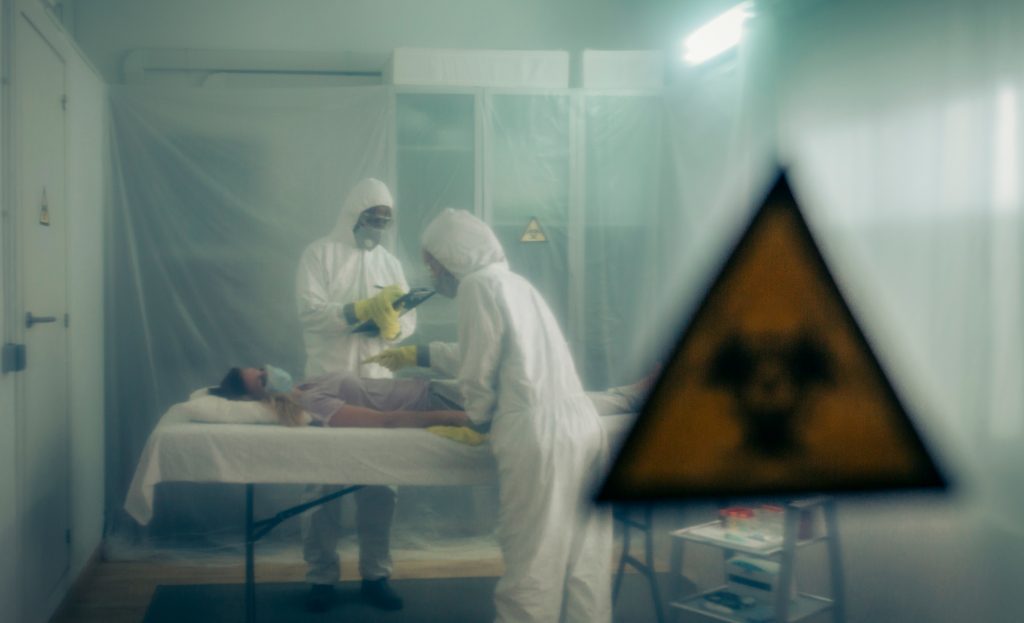Chief executives, frustrated hospital and other NHS staff who are being left to treat potentially or actually infected patients without the right protective equipment may wonder who to blame: but at the centre of this ongoing fiasco, which has required the army to step in and try to get progress, is yet another botched Tory privatisation.
NHS Supply Chain is the organisation which should be coordinating the distribution of the vital PPE gear, ventilators, supplies of sanitiser and other basics to hospital trusts, GPs and community health providers. But it is manifestly failing in its task.
Who, then are NHS Supply Chain? Technically it is a holding company owned by the Secretary of State for Health and Social Care. But in practice it is an immensely complex and dysfunctional web of contracts at the centre of which is Unipart, the one-time supplier of components to the motor industry, which won the £730m contract to take over the logistical contract from DHL back in 2018.
Since March last year Unipart Logistics has been tasked with delivering medical devices and hospital consumables (other than medicine) to NHS trusts, warehousing, inventory management, order processing and delivery, and a subcontracted home delivery service, which makes up 10% of the contract. So if they are not being delivered, it’s down to them.
On commencing the contract, Frank Burns, MD of Unipart Logistics stated
“It has been a long-held strategy for Unipart Group to contribute to the NHS on a national scale and being part of NHS Supply Chain provides this opportunity. We look forward to building on the existing strengths of the organisation and introducing further improvements and innovations by applying ‘The Unipart Way’ with a ‘whole supply chain view’ to help achieve NHS Supply Chain’s priorities.
“We will bring to bear our group philosophy of understanding the real and perceived needs of our customers, serving them better than anyone else and through working in partnership with suppliers.”
One year on, it’s clear that many of their customers have been tearing their hair out for weeks over the delays and failures of the ‘Unipart Way’ and their obvious lack of understanding.
On March 19, for example the HSJ reported that the company and “NHS Supply Chain” had actually been “‘managing demand’ for an increasing number of PPE and infection control products since the end of February to ensure ‘continuity of supply’.”
It appears that the company is deciding for itself what level or orders is acceptable, warning trusts that:
“Orders placed for excessive order quantities may be subject to automatic system reduction”
… and “Customers should be prepared to switch to alternative products if necessary.”
One procurement lead told HSJ: “They aren’t supplying enough, they aren’t fulfilling orders. It’s completely chaotic.” Another said his trust had “just enough to manage for the time being.”
HSJ reported central government had recently “eased some of its restrictions on supplies”, although, “at time of writing, neither NHSCC nor the Department of Health and Social Care have responded to questions on what restrictions have been relaxed or on what products.”
Not before time, NHS Supply Chain is also shipping FFP3 ventilator masks — crucial for protecting clinicians treating infectious patients — from the government’s pandemic stockpile to trusts, although HSJ reports “some trusts have complained the allocations they are receiving are inadequate and unpredictable.”
Of course, the blame might not all be due to Unipart: their contract is only the biggest of a batch of no less than 13 new national contracts which form the new “NHS Supply Chain,” several of which are held by private companies. These contracts arise from splitting up the previous DHL contract:
“That contract has been disaggregated into four distinct functions: logistics; transactions services; IT prime to deliver supporting technology; and the 11 ‘Category Towers,’ run by specialist providers.”
These include DHL which lost the logistics contract, but now has three of the 12 smaller contracts, three more contracts are held by Collaborative Procurement Partnership LLP, and one each by management consultants Akeso & Company, Crown Commercial Service, Foodbuy, NHS North of England Commercial Procurement Collaborative, and IT specialists DXC Technology.
Confusingly the kit required to combat the Covid-19 epidemic appears to span three of the overlapping but apparently separate categories (which are for some obscure reason known as “category Towers”) and covered by two different contractors:
- Ward Based Consumables
- Sterile Intervention Equipment and Associated Consumables
- Infection Control and Wound Care
Ominously, as the new system was launched it was claimed by the government that the whole clumsy package would generate savings of £2.4bn over five years.
Whether or not any such savings materialise we can only speculate at this stage, but if those savings are at the expense of a confused system of delays and incompetence that puts the lives of staff and patients at risk, few in the NHS will believe it is a price worth paying.
Dear Reader,
If you like our content please support our campaigning journalism to protect health care for all.
Our goal is to inform people, hold our politicians to account and help to build change through evidence based ideas.
Everyone should have access to comprehensive healthcare, but our NHS needs support. You can help us to continue to counter bad policy, battle neglect of the NHS and correct dangerous mis-infomation.
Supporters of the NHS are crucial in sustaining our health service and with your help we will be able to engage more people in securing its future.
Please donate to help support our campaigning NHS research and journalism.


